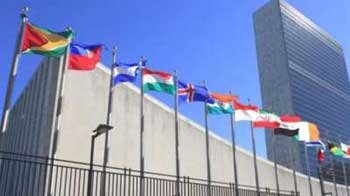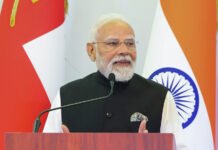INVC NEWS
New Delhi — : The tensions between India and Pakistan have intensified following the Pahalgam terror attack, prompting strong diplomatic action from New Delhi. On Saturday, India’s permanent representative to the United Nations, Parvathaneni Harish, unveiled Pakistan’s duplicity at the global forum, firmly linking the suspension of the Indus Water Treaty to Islamabad’s sustained patronage of terrorism.
India Slams Pakistan’s Misinformation at the United Nations
India took a bold stand against Pakistan’s propaganda at the UN, especially after the Pakistani envoy claimed that “water is life, not a weapon of war.” Countering this, Harish stated that India suspended the Indus Water Treaty as a direct consequence of the Pahalgam terror attack and will not reinstate it until Pakistan ceases cross-border terrorism. Harish accused Pakistan of weaponizing terror while falsely portraying itself as a victim.
Historic Context: Treaty Signed in Good Faith, Betrayed by Terrorism
Signed over six decades ago, the Indus Water Treaty was a landmark of goodwill. However, Harish emphasized that India’s patience has been tested repeatedly by decades of Pakistani-sponsored terrorism, which has claimed more than 20,000 Indian civilian lives. Despite persistent provocations, India continued honoring the treaty—until now. A new India, Harish asserted, refuses to tolerate acts of aggression disguised as diplomacy.
Terror Attacks and Environmental Sabotage Go Hand-in-Hand
Beyond terrorism, Pakistan has allegedly targeted key infrastructure projects in India. Harish cited the 2012 terrorist strike on the Tulbul navigation project in Jammu and Kashmir, a development that not only compromised Indian security but also threatened sustainable energy development and climate stability. India argues that these assaults underscore a broader strategy by Pakistan to destabilize the region.
India Links Treaty Suspension to Elimination of Terror Havens
India made it crystal clear at the United Nations: the Indus Water Treaty will remain suspended until Pakistan completely dismantles terror infrastructure on its soil. Harish called Pakistan the global epicenter of terrorism, stating that any agreement loses meaning if trust is consistently violated. The message was unequivocal—no talks or treaties without real action against terrorism.
Operation Sindoor and Ceasefire Outcome
The chain of events escalated rapidly after the April 22 terror attack in Pahalgam. India responded decisively, cancelling the treaty on April 23. On May 7, under Operation Sindoor, the Indian Army crossed the border and dismantled nine terrorist hideouts. This show of force compelled Pakistan to agree to a ceasefire on May 10, marking a significant geopolitical shift in South Asia.
India’s firm stance on suspending water-sharing agreements with terror-harboring nations sets a precedent. As international focus intensifies on South Asian security, New Delhi’s actions spotlight a new era of zero-tolerance for terrorism, even in the realm of humanitarian treaties like the Indus Water Treaty.
















